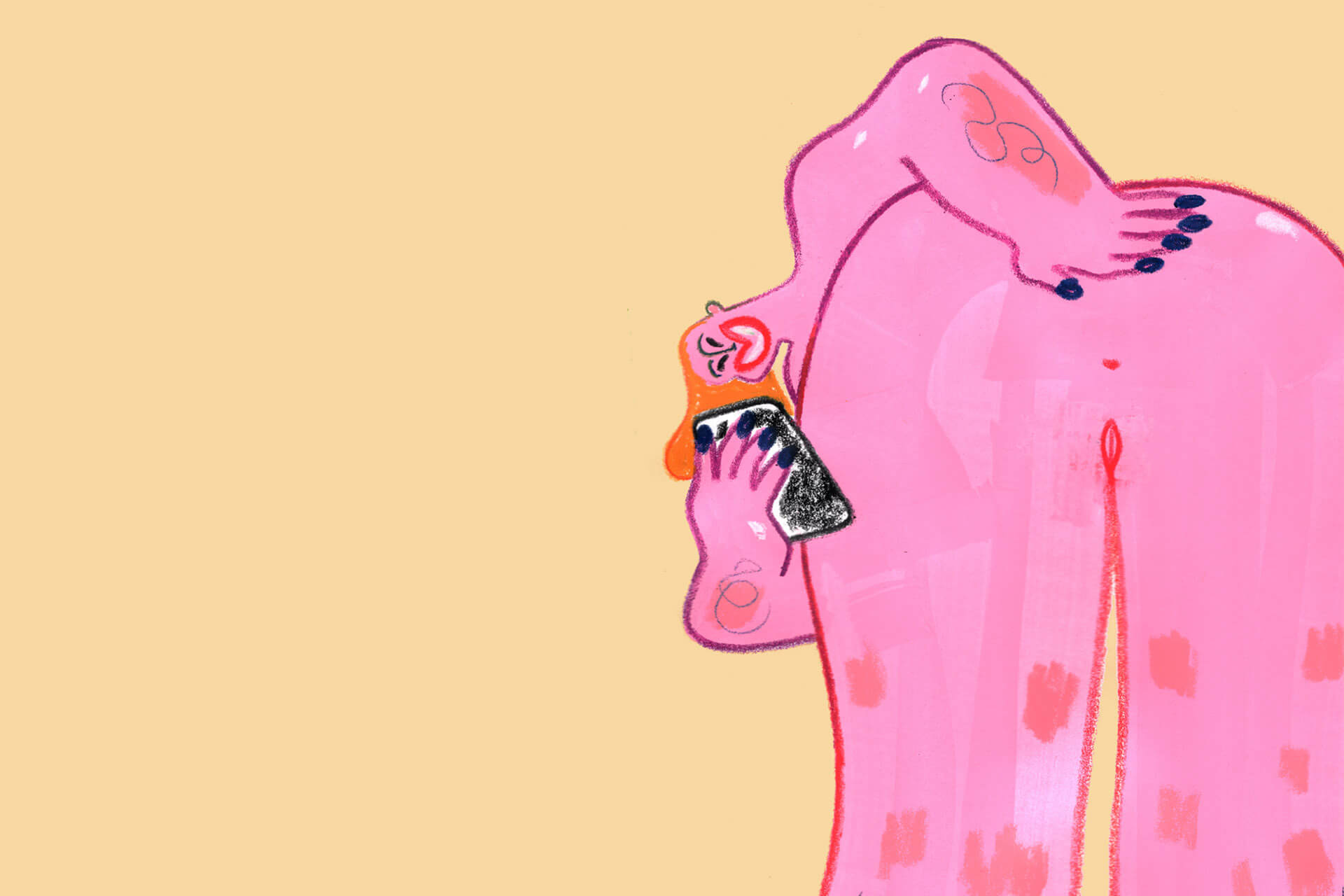Sep 29, 2021 Society
As much as it might pain us to admit, New Zealanders lag behind the rest of the world when it comes to social trends. The internet is quickly closing the gap — some of us are old enough to remember when it took years for UK and US slang to reach our shores; on social media, it happens almost simultaneously — but we still tend to look to our cultural big brothers, Britain and America, for what’s next on the horizon.
All signs suggest it’s endless discussion about OnlyFans, a content subscription service headquartered in London where ‘creators’ receive money directly from ‘fans’, usually on a monthly basis but with the option of one-time tips and a pay-per-view feature. While the platform’s representatives are at pains to insist it isn’t just about porn, everyone under- stands that ‘content’ here usually means nude pictures and sexually explicit videos. In starker terms, OnlyFans is a tool allowing aspiring porn performers to cut out the middleman, engaging directly with the end consumer.
OnlyFans was launched in 2016, but became a household name in April 2020 after Beyoncé teased that she “might start an OnlyFans” on the remix of Megan Thee Stallion’s smash hit ‘Savage’. Right around this time, Google trend data shows a fourfold spike in the number of New Zealanders searching the term “OnlyFans”, and chief operating officer Thomas Stokely told BuzzFeed News the site was seeing about 200,000 new users every 24 hours and 7000 to 8000 creators joining every day.
A bunch of those creators have done remarkably well out of the service, which led to stage one of the OnlyFans media coverage overseas: positive — sometimes giddy — reporting on star earners. The New Zealand media quickly followed suit. In May last year, the New Zealand Herald ran a story titled “Kiwi girls making over $5,000 a month on OnlyFans”, and in September, 1 NEWS ran a similar angle, profiling an OnlyFans creator from Rotorua who claimed to have made $10,000 the previous month.
Naturally, OnlyFans was delighted with all this free publicity, and capitalised on the wave of interest. “Beyoncé, and any artist, are welcome to join OnlyFans at any time to foster a deeper connection with their fans,” a rep told Rolling Stone, and copy on the website’s ‘How’ page insisted: “Anyone can earn. As far as we’re concerned, if you use social media and produce your own content, you should be using OnlyFans.”
But the honeymoon didn’t last. Eagle-eyed reporters and concerned onlookers soon realised this glowing publicity wasn’t painting an accurate picture of the OnlyFans economy. Cue stage two of the media coverage: backlash.
First, reporting began to suggest OnlyFans is actually a slightly scammy, winner-takes-all system, where a minority of highly visible outliers make mega-bucks and the unfortunate masses earn a pittance. One University College London graduate scraped OnlyFans’ web- site and crunched the numbers, finding that while top accounts make something like $100,000 a month, the median creator makes a mere US$180 in the same period. Adding insult to injury, the biggest earners are usually already rich celebrities: American actress Bella Thorne set a new record by earning over $1 million in her first 24 hours on the subscription platform in August 2020.
Then, details about OnlyFans’ recruitment campaign started to leak, which some commentators found aggressive and creepy. In October 2020, New York Times columnist Elizabeth Bruenig — who is Catholic and whose wholesome social media presence involves dozens of pictures of her young daughters and recently baked goods — shared a screenshot of an email from an OnlyFans rep encouraging “mainstream creators and influencers” like Bruenig to create accounts. “We live in a seriously deranged era,” she tweeted alongside the image.
By this point, the celebratory media tone had cooled, but the final nail in the coffin was an announcement in April this year by viral video meme star and rapper Bhad Bhabie that she would be starting an OnlyFans on her 18th birthday — a promise she followed through on, and one which sparked “something of a meme for young women to say they plan on starting an account once they turn 18,” according to Rolling Stone journalist EJ Dickson.
“You have girls in high school who can’t wait to turn 18 to get an OnlyFans,” confirmed Maddie, a 20-year-old university student in Oregon. “You’ll see TikTok videos or tweets of girls showing off these beautiful apartments, designer bags, and plastic surgeries they’re able to afford from OnlyFans, so it gives young girls the misconception that it’s easy to make a lot of money, when the reality is that most people are not cut out for sex work and end up signing themselves up for some- thing they can’t emotionally handle.”
In a few short months, the tone of the OnlyFans coverage overseas went from gushing, cyber-utopian optimism to con- cern about the normalisation of sex work, especially among young girls. In America, there are even signs the platform will become a site for political battles: A few months ago, Arizona Republican Paul Gosar publicly called on the US Attorney General to investigate OnlyFans for “promoting, and profiting from, online prostitution”.
Often, international media serves as a crystal ball for New Zealand’s immediate future — will Lorde shock us by starting an OnlyFans? Will Auckland’s high school principals start issuing warnings about the perils of the platform to Year 13s? Will Colin Craig spearhead a legal challenge banishing OnlyFans from our shores? Only time will tell.
—
This story was published in Metro 432 – Available here in print and pdf.






